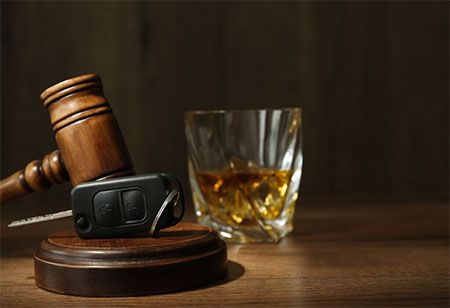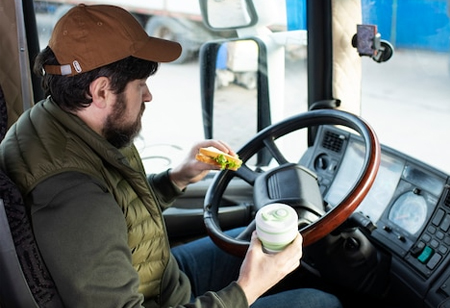
Drivers with Commercial Driver’s License (CDL) and Drivers transporting hazardous materials (HAZMAT) face harsher punishments when it comes to DWI. These drivers are subject to having their licenses revoked upon a DWI charge, even if they're arrested while driving a personal vehicle.
If you've been involved in a similar incident, it is important to contact an experienced commercial DWI attorney to see how you can mitigate the charges against you.
Stricter Rules for Commercial Drivers
Regular drivers might be okay with a beer or two before getting behind the wheel (up to a Blood Alcohol Content or BAC of 0.08%). But for truck drivers, even a sip can be risky. Their limit is way lower, at just 0.04% BAC.
Why the difference? Because a regular car weighs a few thousand pounds, while a loaded truck can weigh tens of thousands! Even a small mistake by a tipsy commercial driver could cause a massive accident, involving multiple vehicles and serious injuries.
To make sure commercial drivers stay safe, they have to follow stricter rules:
• Lower BAC limit: Regular drivers can be DUI at 0.08%, but commercial drivers are DUI at a much lower level, 0.04%. That means even a little bit of drinking can be a big problem.
• Extra testing: Before getting a commercial driver's license (CDL), commercial drivers must pass drug and alcohol tests. They also get tested randomly while on the job.
• Automatic suspension: If a commercial driver gets caught with a DUI, they lose their CDL right away, even if they weren't driving a truck at the time. This is to keep dangerous drivers off the road.
• Refusal is bad: If a commercial driver refuses a breathalyzer test, it's the same as admitting a DUI. They'll lose their license and could face other charges.
• More than just jail: A DUI conviction can mean losing your job, paying higher insurance rates, and having to install an Ignition Interlock device in your truck that won't let you start it if you've been drinking.
 Why the Stakes are higher for Commercial drivers
Why the Stakes are higher for Commercial drivers
Here's why a DUI is especially risky for a commercial driver:
• Stopping Power: Large trucks need a much greater distance to stop compared to smaller cars. Even if the driver is slightly impaired, they can miscalculate this stopping distance, and likely cause a rear-end collision.
• Slowed Reaction Time: Alcohol messes with your thinking and slows down your reaction time. For a commercial driver, even a split-second delay in responding to a hazard can lead to a devastating accident.
HAZMAT Drivers Face Stricter Consequences
Some trucks carry dangerous materials like chemicals or gasoline. An accident involving a drunk driver hauling such cargo can have catastrophic consequences. Such accidents can cause environmental damage and pose a serious threat to public health.
The FMSCA ensures that every driver who gets a CDL is fully trained and vetted. They conduct stricter background checks, tougher knowledge tests, and mandatory drug and alcohol tests before you even hit the road. They even require random drug and alcohol tests for HAZMAT and CDL holders while they're on the job.
Do Convicted Drivers Get a Second Chance?
The consequences of a DWI for a commercial driver can be severe. However, there are also opportunities for them to regain their driving privileges.
It all depends on the specifics of the case and the driver’s history. If the driver is a first-time offender, the court will be more inclined to allow them to participate in alcohol treatment programs and license reinstatement procedures.
Getting back on track fully after a DWI charge is a long and tedious process. You’ll need help navigating the hurdles. An experienced attorney can give you all the help you need. They will help you get through any obstacles that might come up and stick with you till you have your license back.
We use cookies to ensure you get the best experience on our website. Read more...